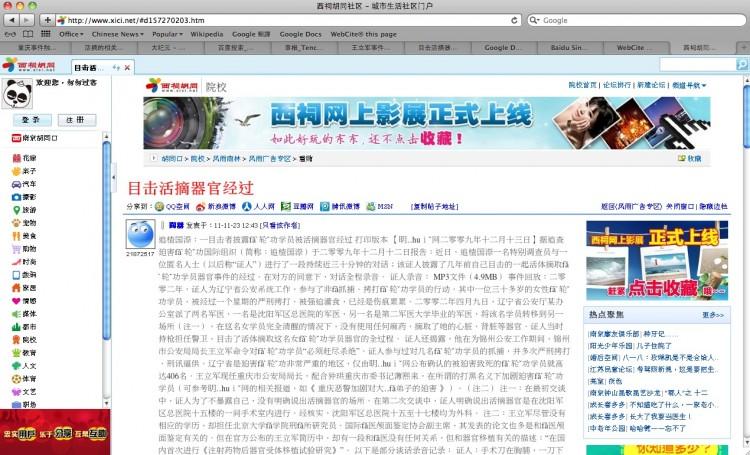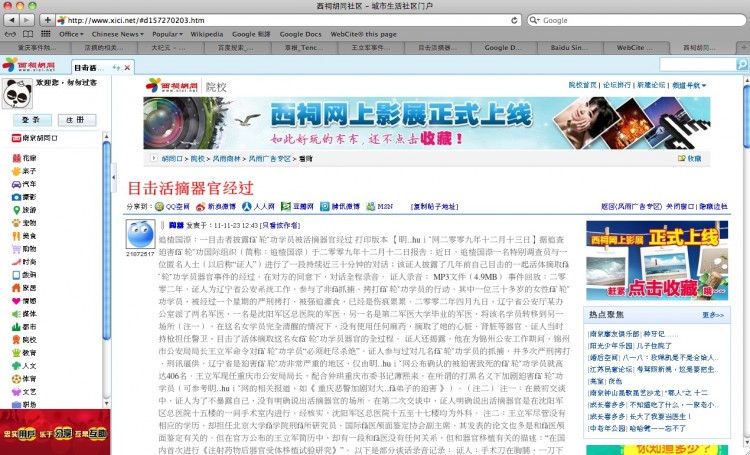In the latest bout of oddness to come over the Chinese Internet’s notoriously strict censorship, searches for terms related to live organ harvesting have recently been unblocked on several major Internet portals.
Chinese Internet Allows Searches for ‘Live [Organ] Harvest’
In the latest bout of oddness to come over the Chinese Internet’s notoriously strict censorship, searches for terms related to live organ harvesting have recently been unblocked.
![Chinese Internet Allows Searches for ‘Live [Organ] Harvest’](/_next/image?url=https%3A%2F%2Fimg.theepochtimes.com%2Fassets%2Fuploads%2F2015%2F07%2FScreen-shot-2012-03-25-at-%E4%B8%8B%E5%8D%8801.18.18.jpg&w=1200&q=75)
A screenshot of the first result listed on Baidu, China's main search portal, when searching for the terms "Wang Lijun live harvest." The Epoch Times
|Updated:






